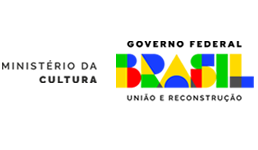Seventeen years after Candido Portinari's death, the newspaper O Globo published: "Portinari, the painter. A famous unknown. More than 95% of the work of the greatest contemporary Brazilian painter is now inaccessible to the public, kept in private collections. What has become of the work of a man who, throughout his life, emotionally expressed the Brazilian soul, people and life?". The writer Antonio Callado had also denounced it: "...Segregated in private collections, in bank rooms, Candinho is becoming invisible. Will our greatest painter continue to be dismembered, like the Tiradentes he painted?"
The Portinari Project was created in 1979. Its founder and director-general to this day, Professor João Candido Portinari, addressing his father in a posthumous letter-preface that introduced the first publication of the Portinari Project, declared: "...it is as a Brazilian that I feel duty-bound to work so that we can all rediscover your work and, through it, ourselves."
Initially aimed at systematically, thoroughly and comprehensively recovering Candido Portinari's life and artistic production, as well as the historical context in which he lived, the project also seeks to integrate the artist's work in the service of a broader purpose: the search for our cultural identity and the preservation of national memory. Likewise, it aims to contribute to a comprehensive socio-cultural action aimed at improving understanding of the Brazilian historical and cultural process.
The Portinari Project also considers one of its most important missions to be working to democratize the painter's pictorial, ethical and humanist legacy. It is also committed to working with children and young people in particular, based on the social and human values present throughout the "Portinari" universe, in order to encourage reflection on Brazilian and world reality. This is how Antonio Callado felt about and described the pioneering initiative of the Portinari Project: In the house of the French architect Grandjean de Montigny, there is a labor of love and technique that fixes Portinari's work for posterity... Personally, I've never seen such meticulous and intelligent work in Brazil to keep the memory of an artist alive... a project that constitutes a historic landmark: this is how a country establishes its cultural roots...
The Portinari Project's collection is the result of surveying and cataloging more than 5,200 works and 30,000 documents relating them to each other and to the works. Among these documents are 6,000 pieces of correspondence, 12,000 newspaper and periodical clippings, 2,900 period photographs, testimonials, exhibition and auction catalogs and texts.
In its Oral History Program, it recorded 70 testimonies, totaling 130 recorded hours. Carlos Drummond de Andrade, Oscar Niemeyer, Lúcio Costa, Luís Carlos Prestes, Jorge Amado, Afonso Arinos, Raul Bopp, Antonio Callado, Clarival do Prado Valladares, Celso Antonio, Radamés Gnatalli, Francisco Mignone, José Olympio, Carlos Scliar, Maria Clara Machado, Alfredo Ceschiatti, Enrico Bianco, Augusto Rodrigues, José Paulo Moreira da Fonseca, Pietro Maria Bardi, - as well as the painter's family - gave testimonies that contributed greatly to a deeper understanding of Portinari's life and work, as well as the aesthetic, artistic, cultural, social and political concerns of his generation.
The Portinari Project's social and cultural activities are manifested through the accessibility of the artist's work to the public. This includes the first retrospective exhibition of Portinari's work, held in 1997 at the Assis Chateaubriand Art Museum of São Paulo (MASP). In addition, the Project is involved in editing and/or participating in publications dedicated to Portinari, creating materials to democratize access to Portinari's legacy, and planning and executing the “War and Peace Project”. on the reverse, Work “cabeça de mulher” fco-5945. The latter involved the restoration of the War and Peace panels in a studio open to students and the general public, located in the Gustavo Capanema Palace in Rio de Janeiro, and their exhibition in Rio de Janeiro (2010), São Paulo (2012), Belo Horizonte (2013), and Paris (2014). The Portinari Project kept the panels for six years, returning them to the UN in 2015 in a ceremony presided over by the UN Secretary-General himself.
The project also holds exhibitions in Brazil and abroad, giving Portinari's artistic wealth wide visibility.
The "first visible face" of the Portinari Project were the lectures given by its director-general, Professor João Candido, throughout Brazil and abroad, which are still being held today. To give you an idea of its scope and importance, let's cite just one example: when the University of California inaugurated the "Berkeley Mulltimedia Research Center" (a 30 million dollar venture) in 1995, it did so with just one lecture: that of the Portinari Project, given by Professor João Candido. During the pandemic, he gave 84 "lives" (all these talks and lives are listed in another section of our Portal).
In the socio-educational sphere, the Portinari Project's Art Education and Social Inclusion Center develops teaching and learning initiatives that establish a close connection between Portinari's work and the foundations of a culture of peace. These include the traveling exhibition 'Portinari's Brazil', the 'If I were Portinari' project, the 'Portinari - Art and Science' and 'Portinari Time' exhibitions, the 'Portinari - Art and Environment' project, the 'War and Peace Project' educational program, and the 'Portinari - Painter's Little Trunk' project. In the first edition, dedicated to literature, the artist's work is contextualized with the book 'Menino de Engenho', by José Lins do Rego, while the second associates Portinari's painting with environmental issues. These initiatives seek not only to educate, but also to promote fundamental values for building a more peaceful and inclusive society.
It is important to note that since its inception within the scientific framework of the Pontifical Catholic University of Rio de Janeiro (PUC-RIO), the Portinari Project has been dedicated to interacting with various areas of knowledge, especially those related to science and technology. The aim is to develop and adjust innovative methodologies and techniques that can be beneficial to researchers and institutions involved in similar projects, such as the 'Pincelada Project', for example, dedicated to the serious issue of counterfeiting, which involved researchers from various science and technology departments at the University. This approach reflects the project's ongoing commitment to contributing to the expansion of knowledge and the improvement of practices in various interdisciplinary spheres.
In recognition of its work, the Portinari Project is currently sponsored by the companies Enauta Energia, Instituto Cultural Vale, Faros Private, Rio de Janeiro City Hall; and supported by the Ministry of Culture, PUC-Rio and Portinari Licenciamentos.
From poet Carlos Drummond de Andrade, the Portinari Project deserved the following words: "The executors of the Project work discreetly, but they must be surrounded by the trust and affection of those who think of the Brazil of tomorrow being born from the spirit and hands of the Brazilians of today."






